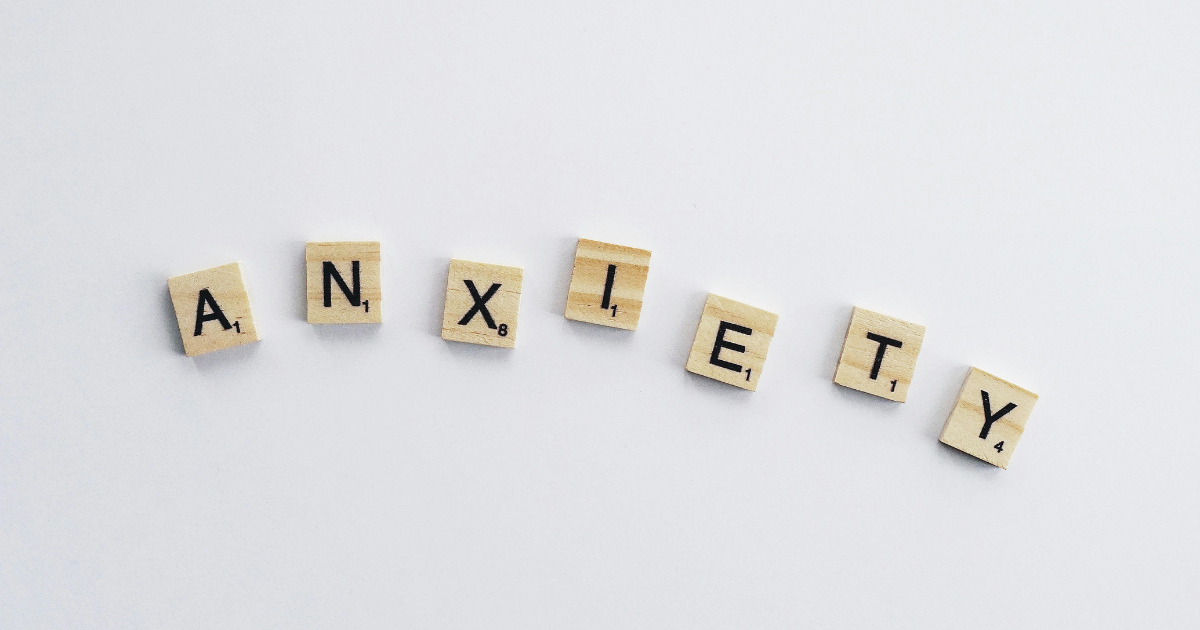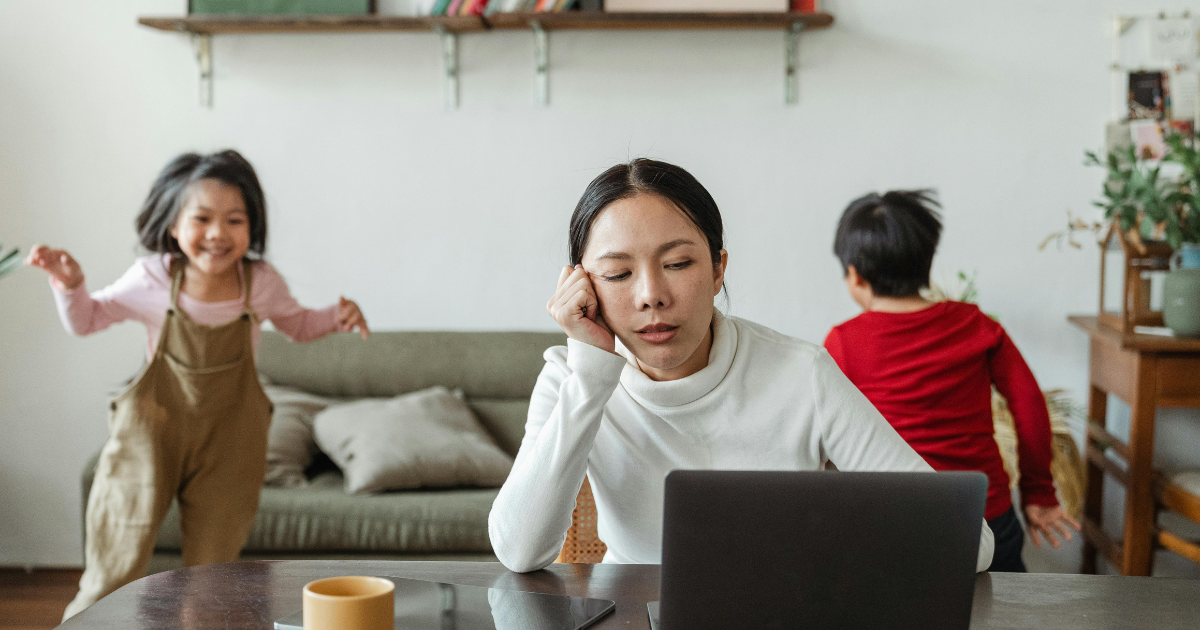Think of the moments we all have faced in today’s world, when the future seems uncertain and with that uncertainty comes anxiety. Whether these be personal ordeals, tragedy galore in the world, or even sudden twists in life, they are mind-boggling. Thankfully though, anxiety does not have to be the ruler of our lives. The thing is that there are so many strategies we can apply to cope with anxiety even when, around us, life seems to be more out of control than in it.
Essential Takeaways
- In times of uncertainty, anxiety is normal, but it can be bolstered with the right strategies such as mindfulness, routine, and exercise.
- Do only things you can have control over and limit your access to stress-inducing news or social media that makes you feel overwhelmed.
- They could then be habitual steps to develop a support network, and practice long-term habits such as journaling, healthy routines, and gratitude, which foster resilience and hence improve mental well-being.
Anxiety spikes with uncertainty. Let’s dive into typical symptoms to look out for and then effective management strategies that you can utilize to reduce your anxiety so that you once again return to a state of calm.
Understanding Anxiety During Uncertain Times
What Is Anxiety, and Why Does It Flare Up When Life Feels Uncertain?
Anxiety can be said to be the body’s reaction to stress or a situation that places a person in danger. It may be described as apprehension or fear that strikes when you consider the unknown. When the future seems uncertain, your mind tends to jump and imagine the worst-case scenario, leading to an anxious response.
You would constantly worry about your health, your job, or even your future in the event of a global pandemic or financial crisis. This is a typical reaction, but it could interfere with daily life when it becomes too much or persists over time. The first step to controlling this situation, therefore, is understanding why it happens.
Why Should Uncertainty Breed Fear?
If matters become unpredictable, your mind starts off on a hunt to regain control over things. The future cannot be controlled or easily predicted. Your mind keeps coming up with various “what ifs.” The unknown and uncertain state of affairs sets in, inducing stress, tension, and a feeling of helplessness.

Common Symptoms of Anxiety in Uncertain Situations
People can feel it otherwise, but here is a list of the most common symptoms people experience, especially during times of stress or lack of certainty:
Physical Symptoms | You probably can notice the incidence of these physical symptoms with anxiety- a racing heart, muscle tension, headaches, dizziness, nausea, or shortness of breath being something that can occur. A tight chest feeling is also common. |
Emotional and Psychological Symptoms | The illness also has symptoms in the realm of the mind, such as worry, fear, or even dread. One feels too anxious, tending to worry over the outcome. Other people tend to become irritable or on edge, whereas others withdraw or are overwhelmed by simple decision-making. |
Behavioral Expression | Anxiety can also make your behavior change. You become averse to the occurrence of situations that make you anxious in life, such as social gatherings or stressful environments. Others will turn highly hectic or distracted as a way of trying to avoid feelings of anxiety. |
You may know the symptoms better so that you can take control of your anxiety when it occurs before it becomes overpowering. The sooner you can pinpoint the cause and what you feel, the sooner you can apply strategies to decrease those feelings.
The Impact of Uncertainty on Mental Health
Not only is uncertainty short and worrisome, but it can have long-lasting negative impacts on mental health if not coped with. When we live in a perpetual “what if,” our brains and bodies stay in the red zone. Gradually, this can lead to chronic stress, which can affect everything from your sleep patterns to how you digest your food, weakening the immune system and making you more susceptible to getting sick.
- Mental Fatigue. You’ll be mentally fatigued because the anxiety always keeps you worried about what might happen tomorrow. You cannot focus on anything else, and all that you are doing could result in losses at work, in your relationships, and in all other daily activities.
- Helplessness. When nothing seems predictable, you may feel that you have lost control. This feeling easily shifts to hopelessness or depression.
- With prolonged uncertainty, there comes a realization of the toll that it takes on your mental health and the quest for strategies to cope with stress.
Effective Strategies for Coping with Anxiety
Let’s dive into the practical actions you can take to address it because, by understanding what anxiety is and why it rises during such uncertain times, we are better equipped to live through any such situation. These coping techniques help you regain control over your life and emotions, even when the world around you seems uncertain.
Mindfulness and Meditation
Mindfulness essentially refers to being in the moment while letting go of what may or already happened. So when you are mindful, you tend to stay fixated on what is going on now it the sensation of your breath, the sounds around you, or even physical sensations in your body.
Meditation is a really powerful mindful technique. By spending just 5-10 minutes of your daily time meditating, you can even reduce your anxious thoughts. Here’s how you get started:
Sit in a Quiet and Comfortable Place.
Close your eyes and try to focus on your breathing. Inhale and feel the air flowing in and through your lungs, and exhale. If your mind starts to wander, which it will, then don’t worry; simply bring it gently back without judgment to your breath.
Continue this for 5-10 minutes, increasing the time as you get comfortable with the practice.
There are dozens of free apps and guided meditations online to help get you started. The goal isn’t to eliminate all thoughts or worries but to simply become more aware of them without letting them control you.
Create a Routine to Bring Stability
A daily routine is perhaps the best tool with which to cope with anxiety in uncertain times. When everything in the world seems out of control, having a regular routine brings a semblance of stability and control to a difficult situation.
Try to wake up and go to bed at the same time each day. Plan what you will eat, when you will exercise, and which specific hours you will dedicate to work, rest, or leisure activities. Routine gives a sense of structure, thus reducing the mental load in choices of everyday decisions and order to otherwise chaotic times.
Avoid Exposure to Unhealthy News and Social Media
A 24-hour news cycle and multiple social media updates often fuel anxiety, at least when the news is bad. Yet, some level of alertness must be maintained; too much bad news increases stress and worry.

Instead of allowing the temptation of news grazing, restrict yourself to specific times of the day. That way, limit it to 30 minutes in the morning or evening. Silence your phone, and be really intentional about how social media is affecting your psyche. If scrolling through your feed leaves you feeling anxious or like drowning in a black hole from which you cannot escape, it’s high time for a break and a redirection toward something else that can calm you down or at least be productive.
Concentrate on What You Can Control
It’s easy in uncertain times to get lost worrying about things outside your control, but perhaps the best way to reduce anxiety is by focusing on things you can actually control.
List the specific action steps you can take. For example, you cannot control what is happening around the world; however, you can control the environment around you, starting from the daily routine, hygiene, and interaction with people. Therefore, when focusing on what you can influence you will feel in control more often than feeling out of control.
Exercise and Physical Activity for Stress Management
Exercise has been shown to decrease anxiety and increase mood level and one easy way to do this is through the movement of the body. This kind of physical activity releases endorphins in the brain, which work as natural mood elevators. This way, the longer walk, yoga session, or home workout could also help the individual manage the physical as well as emotional symptoms of anxiety.
Take up a hobby, say dancing, cycling, or merely stretching. The most important thing is that you do it regularly. For at least 20-30 minutes a day.
Breathing Exercises and Relaxation Techniques
Anxiety will make your body breathe fast and shallowly. That makes panic even worse. Breathing techniques can calm down your nervous system and calm down your anxiety. Here is the easiest exercise: Sit comfortably and lay one hand on your stomach.
- Breathe slowly in through your nose while feeling your stomach rise.
- Hold your breath for four counts.
- Breathe slowly out through your mouth; let your stomach fall.
- Repeat that for 5 to 10 breaths, attending to sensations in your breathing.
Other relaxation techniques include progressive muscle relaxation or guided imagery which can decrease tension and promote a feeling of relaxation.
Organizing a Strong Support System
Building a Support Network
At times like these, it’s important not to be isolated from others, even if you can’t necessarily see them. Social support is an important factor in an individual’s reduction of anxiety.
Talk to Friends and Family
Talk to your loved ones. Sometimes, just speaking to them can bring the mental weight a little lighter. Call them, Skype them, or for the fear of getting into each other’s crowded space, meet them at a distance-physically. Connect with your friends and family and feel supported.
Reach Out for Professional Help If Necessary
And if it feels like too much to bear or gets out of control, you need proper professional support. Therapists and counselors, support groups, etc., can give you powerful coping skills and allow you a safe haven to share your thoughts. Never be afraid of asking for help; there’s nothing that could make you ashamed.
Journaling as a Tool to Deal With One’s Feelings
Writing down your thoughts and feelings can be a powerful tool to handle anxiety. For example, journaling would let you express what is happening in your mind without judgment, thereby allowing you to release pent-up emotions and give you a different perspective.
There is no need to write every day. Begin jotting down your thoughts when you feel overwhelmed, and you may find answering prompts such as:
- What’s bothering me today?
- What am I going to do today that will make me feel more in control?
- What am I thankful for today, even in these uncertain times?
Develop Healthy Habits for Emotional Well-being
One of the best ways to keep healthy habits in line is for the long haul. Sleep is a great one, as well as eating a balanced diet and drinking plenty of water. When all this is managed, your body is much more able to take stress.
Practice Gratitude and Work on Positivity
Gratitude is very powerful in changing your mindset. The simple act of focusing on being grateful for what you do have makes minor thoughts, and it always seems to counterbalance the negative thoughts that come with anxiety.
Write down three things you are grateful for every day, no matter how small. It’s a simple act that can really change your perspective and bring optimism into your life.

FAQs
What are some quick ways to reduce anxiety in the moment?
Some quick ways to reduce anxiety in the moment are through breathing, meditation, and grounding techniques, such as focusing on your five senses.
How do I know if I’m normal and just stressed or if I have an anxiety disorder?
Normal stress tends to be situational and temporary. If your anxiety is persistent, interferes with daily activities, or feels overwhelming, it may be helpful to discuss it with a mental health provider.
Is it normal to be anxious even when everything is fine?
Yes, sometimes anxiety arises even when there isn’t a readily identifiable reason. Anxiety tends to arise from more general causes, like underlying anxiety or a sense of uncertainty, rather than from specific circumstances.
How do I deal with anxiety without medication?
Non-medication interventions include mindfulness interventions, CBT, exercise regularity, and developing a network of social support.
When is the time to seek professional help for anxiety?
If anxiety is interfering with the performance of your daily activities, relationships, or your ability to function, then you may need to seek the help of a professional.






